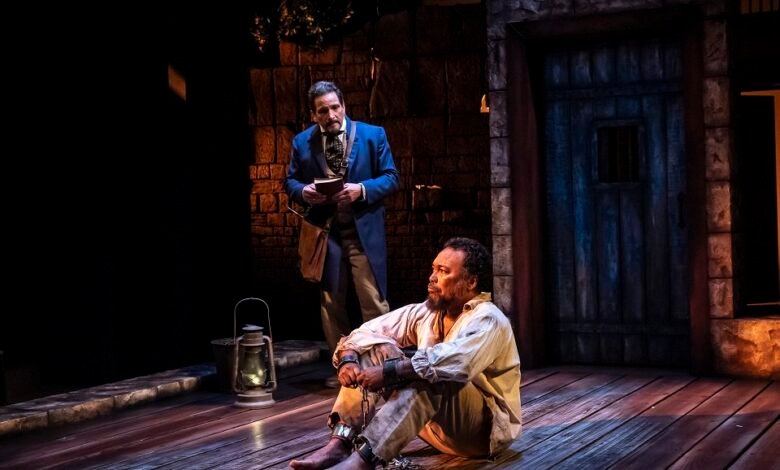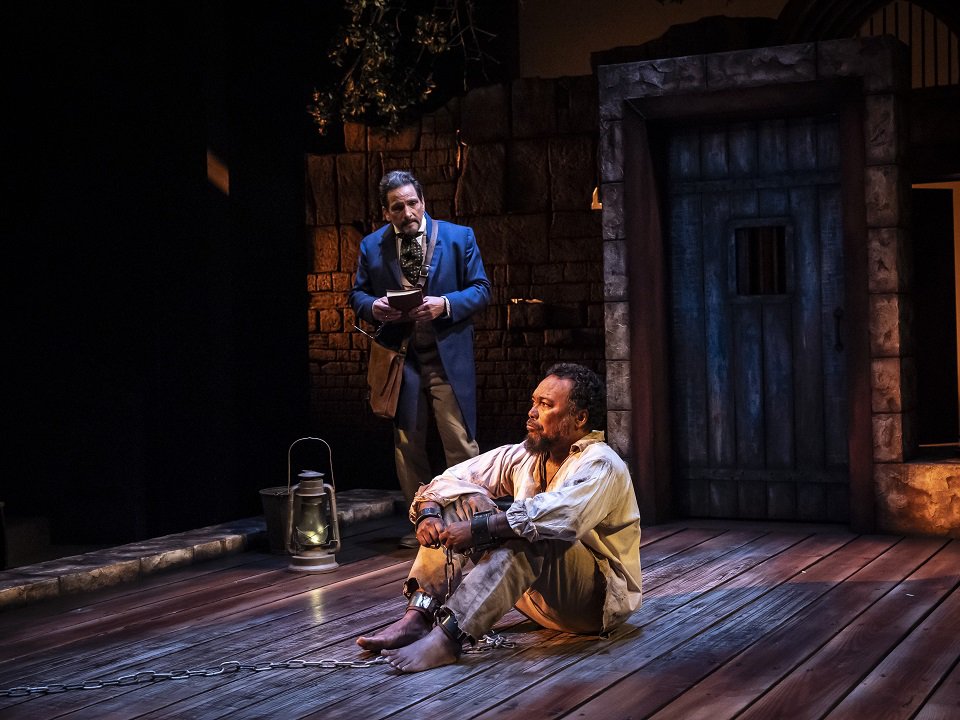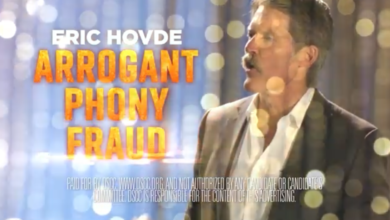A review of American Players Theatre’s Nat Turner in Jerusalem. – Isthmus


We live in a divisive time. On the drive from Madison to Spring Green to watch the masterful, thought-provoking play Nat Turner in Jerusalem, at American Players Theatre, we passed property after property displaying political affiliations: a Trump flag on that acre, a Harris poster outside that house, a cavalcade of signs highlighting our nation’s divide.
The play, written by Nathan Alan Davis and first staged in 2016, runs in the indoor Touchstone Theatre through Nov. 10.
Directed by Chicago-based Tyrone Phillips with set design by Nathan Stuber, the play is staged simply — one set, two actors. But the 90-minute production asks complex questions about America’s long-running divide, and its soul, offering no clear answers. It asks viewers to wrestle with their thoughts on faith and justice, freedom and truth. It asks the audience members to address their collective history by holding up a mirror to the present. Nothing is as simple as black and white.
The play is an historical account of Nat Turner, the enslaved carpenter, preacher, and self-proclaimed prophet who led a rebellion in 1831, three decades before the Civil War. The action resulted in the deaths of around 60 white men, women and children. The rebellion was swiftly suppressed and days later Turner was captured. He went to trial soon after and judged guilty by a white jury. He was executed a few months later. But before his death he told his story to lawyer Thomas Gray, who would publish The Confessions of Nat Turner soon after Turner hung from the gallows.
The action of the play takes place in a holding room in Jerusalem, Virginia, the night before and the morning of Turner’s execution.
Gavin Lawrence, in his ninth season at APT, is commanding as Turner. With small but evocative gestures, he serenely shares his story while always questioning the reactions to his story.
Those reactions come from Jim DeVita, a magical force on stage. Playing both Gray and an unnamed guard, DeVita fervently engages Turner throughout with probing questions and passionate rebukes, wanting to ensnare him into his way of thinking, whether about slavery, politics, justice, or the will of God.
The viewer is left with questions about who is right and who is wrong in this debate. Can both men be both right and wrong?
Lighting design by Jason Lynch and sound design by Willow James are both subtle and minimalistic, in keeping with the unadorned set. The focus is all on making the audience sit with these difficult questions, in the same room with Turner. Lawyer and guard, questioning their own stances on difficult topics, ask the audience to do the same. What is right and wrong? What would one do to right those wrongs?
At one point the lawyer tells Turner that he will be forgotten. Yet, there theatergoers were, sitting in a hushed theater in the middle of rural Wisconsin, still engaged with his life and times.
On the drive home, it was dark. We could no longer see the Trump and Harris signs on the side of the road. It was just the country.




